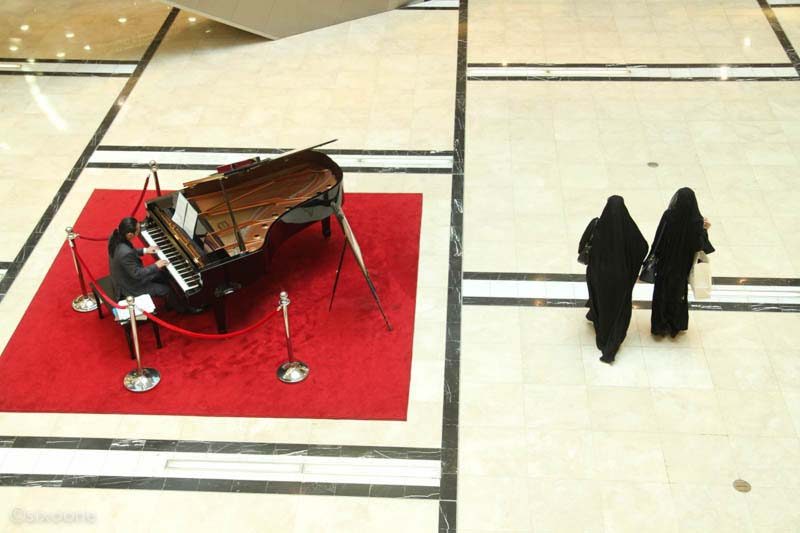
Two new separate studies about wealth held by Qataris has shown that while there is an established financial elite within the community, there are also many locals who are suffering financially while trying to keep up with their peers.
According to the latest edition of Barclays Wealth Insights, nearly all (98 percent) of Qatar’s most wealthy made their money in less than 20 years – the fastest rate in the world.
Just over one-third (38 percent) achieved high net-worth status in less than 10 years, and almost two-thirds of these individuals (60 percent) took advantage of the global economic crisis to increase their wealth through international investments such as property and stocks.
Meanwhile, in a second report by American Express, 18 percent of Qataris surveyed said they planned to cut back on spending on luxury goods and experiences in 2015 due to “changing personal circumstance.”
This is the highest figure in the GCC, according to the figures in the American Express Middle East Spending Survey and comes as up to three quarters of Qataris struggle with debt.
Wealth strategy
It is not clear how many Qataris are considered to be in the high net-worth category. As of 2013, there were 300 “ultra-net high worth” people worth $30 million or more living here, including 12 billionaires.
And previously, Qatar was ranked as having the world’s highest percentage of millionaires, with nearly 50,000 households holding private wealth of at least $1 million, according to the Boston Consulting Group. But the nationalities of those wealthy people were not disclosed.
For the 18th edition of the Barclays report, titled “The Rise of the Global Citizen?,” 2,000 high net-worth individuals (HNWI) from 17 countries were surveyed.

All of these entrepreneurs, business leaders and investors held more than US$1.5 million in total net worth, while 200 of them had more than US$15 million.
The report found that shrewd and bold financial decisions have paid off for many Qatari investors, who saw their wealth soar after taking advantage of opportunities in the global markets during times of economic crisis.
Specifically, investment in real estate, particularly in London and New York, is believed to be one factor to successful wealth growth, as the cities’ high-end property markets have boomed in the last five years.
Investment in developed market equities, especially the European and Asian stock markets, is also thought to have contributed.
The report also found that successful business people in the GCC are increasingly demanding diversified investments and global portfolios to help spread the risk.
They are also looking to add new lines to their business as a way of involving younger family members. In a statement, Faranak Foroughi, founder and CEO of Tharwa Management Consultancy, which specializes in wealth planning for GCC residents, said:
“As the families grow, the need for generational planning and managing transitions in the business are difficult challenges to address.
Expanding into new business lines and adding new dimensions to the business helps to avoid tension and intra-family conflicts.”
Debt woes
Beyond this elite, many Qataris have been struggling financially. In the recent past, increasing wealth among some citizens has come at the same time as growing debt among others.
According to a 2011 Credit Suisse report for example, wealth went up six-fold in the past decade, but debt increased nine-fold.
Cognizant of this problem, there has been a push in recent years to urge Qataris to spend more responsibly.
The 2011 National Development Strategy (NSD) states that three out of four Qataris are in debt, with most owing an average of QR250,000. But the report adds that it hopes to halve the number of indebted citizens by 2016.
According to a 2012 study from the Supreme Council of Family Affairs, there are many reasons Qataris spend irrationally, including competitive behavior. Other factors include:
- Lack of planning;
- Over-reliance on credit cards, which make spending easier;
- Frequent visits to malls;
- Failure to distinguish between necessities and luxuries.
In the AmEx study, though almost a fifth of Qataris they planned to cut back on high-end goods, almost as many said they planned to spend more in this category.

The report also found that, in a departure from previous years, more Qataris are favoring luxury experiences over high-end goods, with 70 percent of Qataris quizzed by YouGov as part of the MENA survey saying this was how they preferred to spend their money.
Going out for a nice meal was the favored experience for nearly half (46 percent) of all Qatari respondents, followed by holidays then “personal wellness experiences” such as spas.
Mazin Khoury, CEO of American Express Middle East, said:
“For Qataris, the special experience of fine dining or the personal fulfillment gained from a holiday creates the enriching moments which are increasingly regarded as the most valuable when it comes to luxury spending.”
Of those who still like to spend money on tangible goods, cars and jewelry – especially expensive watches – remain the favorite items, and Qataris are the second-highest spenders in the region for both. They come just behind Saudi Arabia in money spent on cars, and after Kuwait for jewelry.
For the MENA region more generally, sporting activities was the top choice for a treat.
This new spending pattern contrasts with the 2012 report, which found people were more likely to spend their disposable income on obvious status symbols such as designer clothes, electronics and cars.
Thoughts?







